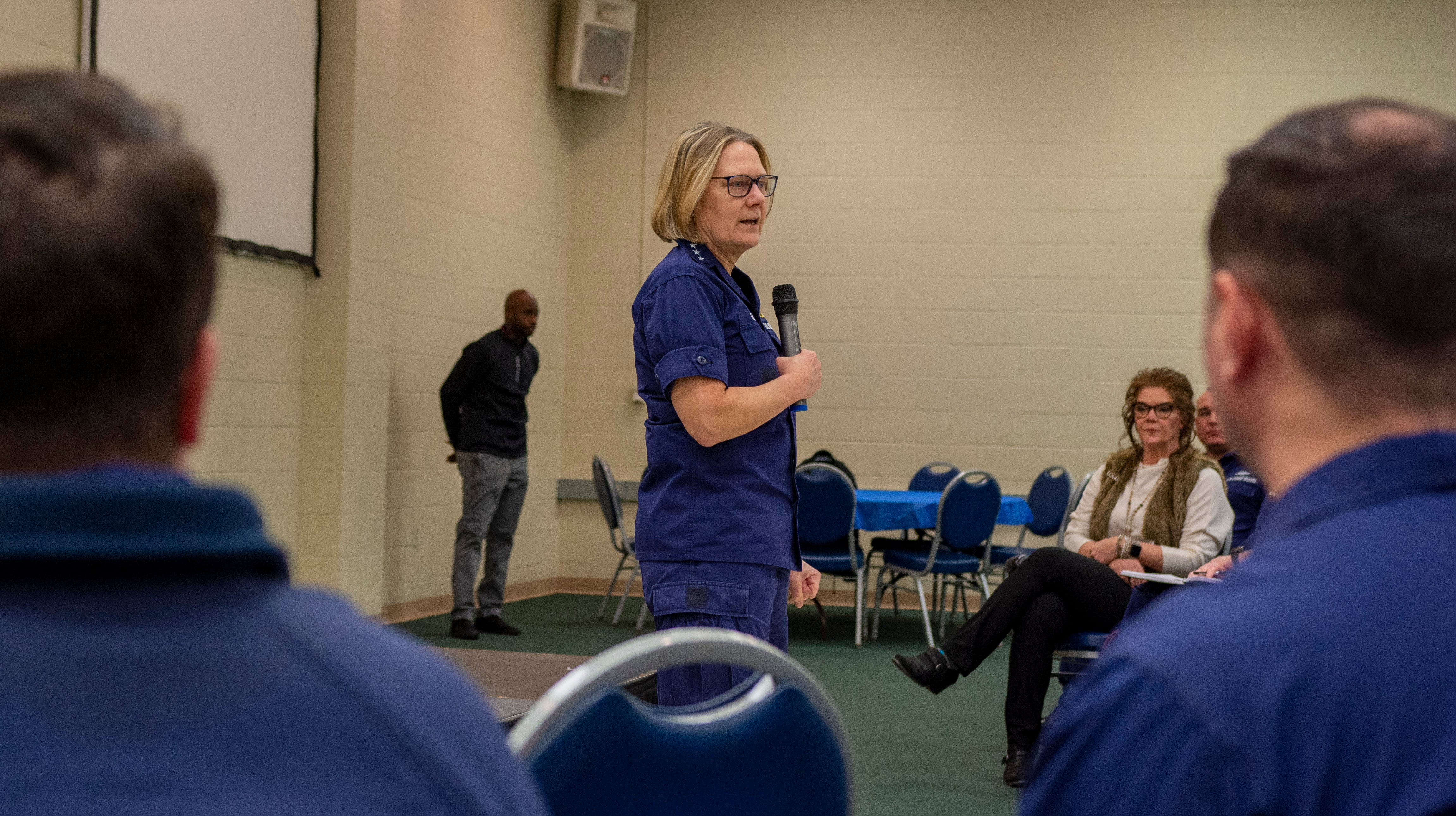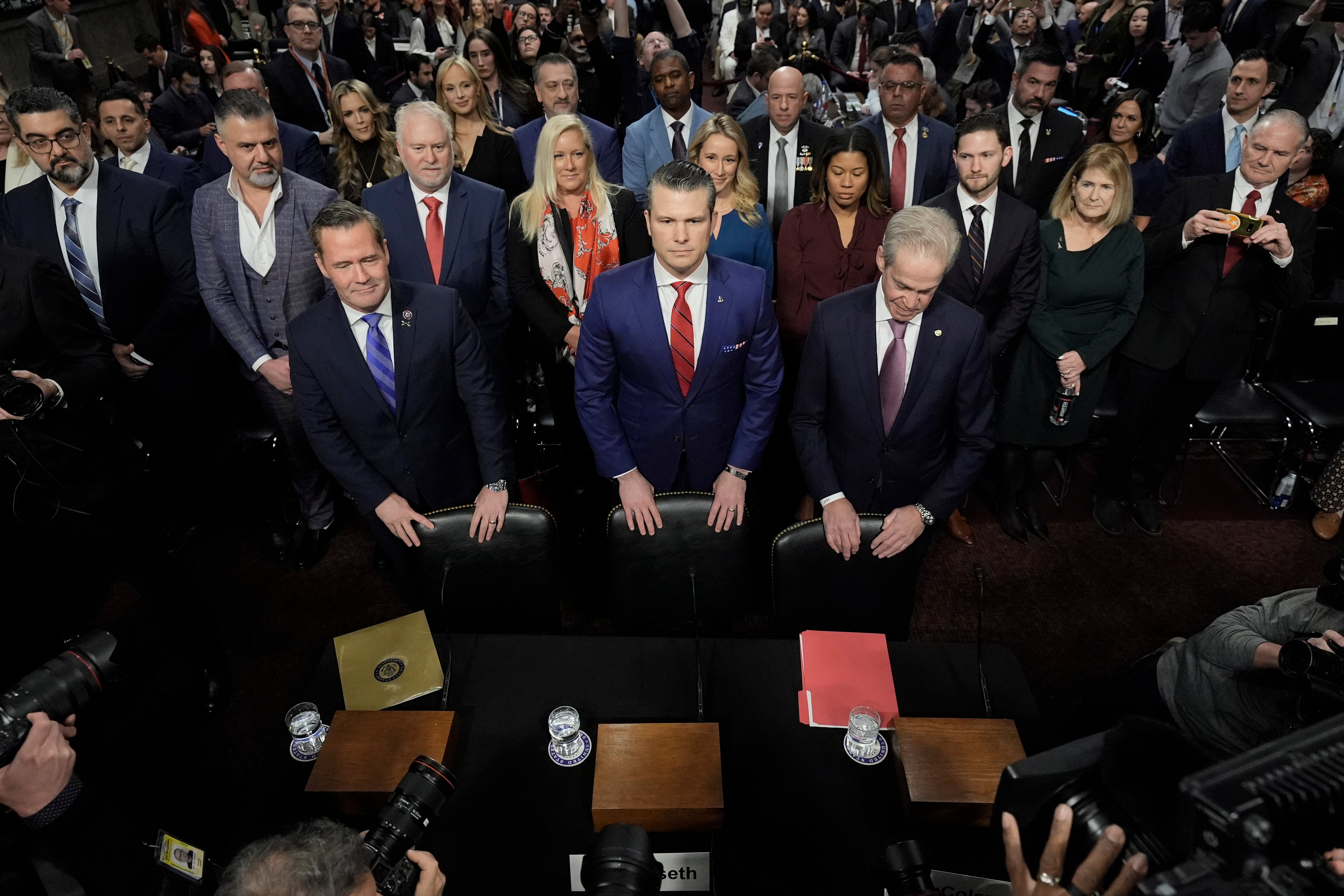Facing a board of inquiry, an Army chaplain literally begged for forgiveness, getting on his knees in front of the panel.
Chaplain (Maj.) Joseph Blay admitted to plagiarism — taking credit for others' written work — three times over about a six-month span ending in early 2014. He told the board he was facing significant financial stress and dealing with family medical issues and marital problems, that he was ashamed of his actions and that he'd never done anything similar over a 17-year Army career.
What he didn't tell the board, or his lawyer: Five years before the plagiarism, Blay had been diagnosed by Army medical personnel with dementia connected to early onset Alzheimer's disease.
Unaware of his condition, the October board of inquiry found the plagiarism allegations were supported and recommended separation from service. While his condition has been made clear to his command since the ruling, appeals to this point have been unsuccessful, and a decision on the matter now rests with the secretary of the Army. Blay's lawyer, David Sheldon, said the major does not yet have a separation date.
Meanwhile, a medical evaluation board has recommended Blay receive "permanent disability retirement" — an option that won't be available if Blay is separated for disciplinary reasons.
"Had the show-cause board known of his condition, there would've been no recommendation to separate him," Sheldon said, adding that if the secretary doesn't allow Blay to take medical retirement, he would pursue action via the Board for Correction of Military Records. Federal court could come next.
Blay remains attached to the Huntsville, Alabama-based 2nd Recruiting Brigade, but lost his position as brigade chaplain because of the charges.
'You wouldn't know there was a problem'
Sheldon said his client has trouble connecting his thoughts in some instances can forget something he's just read. His wife, Marian Blay, said she initially attributed some of the changes in her husband's mental state to his deployment to Iraq, which ended in 2007, but that memory issues have continued since.
"If you see him on the street, you wouldn't know there was a problem," she said. "But if you live with him, day-to-day, with the details of things, that's where you see something is wrong."
Unaware of Blay's diagnosis, Capt. John Sullivan didn't begin work in earnest on the chaplain's case until June 2014. Sullivan said he asked Blay if he had any medical issues. Blay, who for seven years had been having memory problems, said no. Sullivan said there were no signs during their conversations.
"Typically, if there's some kind of … disability or medical impairment, you want to bring that to the attention of the board," said Sullivan, then serving as senior defense counsel at Fort Rucker, Alabama.
After the board's decision, Sullivan sent a memo to Maj. Gen. Allen Batschelet, then-head of Army Recruiting Command, that recommended Blay remain in service at least until the 20-year mark or, failing that, offered a potential path to early retirement. The memo was provided by Sheldon to Army Times.
Marian Blay also wrote to Batschelet requesting her husband be allowed to remain in service. Her letter also leaves out the chaplain's dementia diagnosis and mental lapses — details she said she didn't include at the request of her husband, who she said felt including such concerns would reduce his chances at returning to active duty.
After preparing his memo, Sullivan said, Blay "came to me … and said, 'I just remembered that in 2009, I was diagnosed with early onset Alzheimer's disease and received treatment. No [medical evaluation board] was ever initiated by my unit, but I do have the diagnosis.' "
Sullivan had Blay inform his chain of command, including providing documents outlining his diagnosis. The lawyer sent multiple emails to the legal team at 2nd Recruiting Brigade notifying them of his client's condition, and was informed that Batschelet would take the new information into consideration before issuing a final ruling.
"Given the nature of the misconduct — it's related to his intellectual capacity, obviously, and his ability to put together a paper, consolidate his thoughts, and so on — a diagnosis of dementia would've been huge. It would've been incredibly relevant material to present to the board," said Sullivan, now chief of military justice at the U.S. Military Academy.
"He'd just completely forgotten about it, I guess. Which, again, could be a result of the dementia."
Spokesmen with the Army's G-1 and and with Army Recruiting Command said they would not comment on an ongoing personnel matter, so it is unclear what, if anything, has been changed by the revelation of Blay's condition.
'The Army has been good to me'
Sullivan called about a dozen character witnesses on Blay's behalf during the show-cause proceedings and said all were eager to offer kind words for the long-serving chaplain. Sheldon provided multiple letters of support along the same lines, as well as glowing evaluations of Blay's service:
- A major rating Blay in his 2006 performance review called him "the best of nine chaplains I have worked with in my 23 years of military service" and noted his "truly unlimited potential."
- A colonel who served with Blay in Germany called him "the most respected chaplain in the community" and said soldiers and families would "benefit immensely" if the board allowed him to continue service.
- The colonel in command of Blay's battalion during his Iraq deployment called him "an energetic, bright and articulate officer" and said the accusations were "uncharacteristic of the Chaplain Blay I know."
"I came from Ghana, from a poor family," Blay told Army Times during a phone interview coordinated through his lawyer. "The Army has been good to me. I've been able to do things that I never dreamt I could do, in terms of helping my family back home."
The 58-year-old served as a parish priest for seven years before joining the Chaplain Corps, endorsed by the African Methodist Episcopal Zion Church.
He deployed to Bosnia-Herzegovina for much of 2000, Army personnel records show, then spent 4½ years in Italy with 22nd Support Group. Two brain scans Blay underwent while in Italy showed small abnormalities, but no follow-up treatment or diagnosis was offered at the time, according to MEB documents.
He returned stateside to serve with 2nd Battalion, 506th Infantry Regiment, out of Fort Campbell, Kentucky, and deployed to Iraq with that unit for a year.
In April 2007, after returning from deployment, Blay "presented to Primary Care … with a one year history of changes in handwriting and described them as worsening with stressful situations," per the board summary. Medical personnel told Blay it was a "benign event," the report states, but in 2008, after assuming duties with a quartermaster battalion out of Fort Lee, Virginia, he went back to the doctor with the same complaint.
A neurological assessment a few months later revealed memory problems — Blay told doctors he had trouble remembering sermons, for example, according to the MEB summary. Doctors suspected dementia, and further tests resulted in a diagnosis of Alzheimer's disease on Feb. 11, 2009.
Blay was prescribed Aricept, a drug that treats all stages of Alzheimer's, but stopped taking it shortly thereafter – after asking a doctor for permission to do so, Blay said — because he'd been suffering headaches and nausea.
In the years between the diagnosis and the plagiarism incidents, Blay did not seek medical care related to cognitive issues, the MEB report says. A neurologist in January 2015 even questioned the initial diagnosis, according to the report, citing "really no significant degradation of performance," but the MEB concluded that Blay does have "a neurocognitive disorder, which has been verified twice on neurophysical testing, and the cognitive disorder is such that it impacts his ability to execute his military duties."
The board found Blay physically unfit for service and recommended a 50 percent disability rating and permanent disability retirement, eligible for about $1,330 a month in Veterans Affairs Department compensation, according to documents provided by Sheldon.
Facing charges
Sheldon, Blay's civilian lawyer, believes the impact of Blay's disease is clear in the plagiarism charges. The chaplain admitted to wrongdoing in all three instances, all of which his lawyer says can be attributed to his cognitive disorder:
- Submitting an article in early 2014 to the Redstone Rocket, the base newspaper at Alabama’s Redstone Arsenal, under his name that had been written by Texas-based pastor Charles Swindoll in 2010. The paper published the piece in February and later ran a correction to note the misattribution.
- Using portions of an article by Swindoll in a story submitted in October 2013 to USAREC’s Recruiter Journal without any attribution.
- Committing academic misconduct by submitted a plagiarized essay as part of his work at the Command and General Staff College in 2013.
Blay told the board on inquiry he "lost his bearing" around the time of the incidents and that he "doesn't understand why the plagiarism took place," per the summary. He pledged never to commit such dishonest acts again, but the board still recommended his separation, "with an honorable characterization of service." One board member dissented, calling the acts "an anomaly" and suggesting Blay remain in uniform.
Blay initially hoped the Army would see things that same way. In a Sept. 11 email, he offered a different outlook.
"I realize that given the nature of my condition, I will not be able to retire as a regular Soldier," he wrote. "My medical condition is profoundly affecting my thought process and every other thing that I do now. Even though I would have loved to complete 20 years of active military service, yet I know that is impossible under the present circumstances."
Kevin Lilley is the features editor of Military Times.





